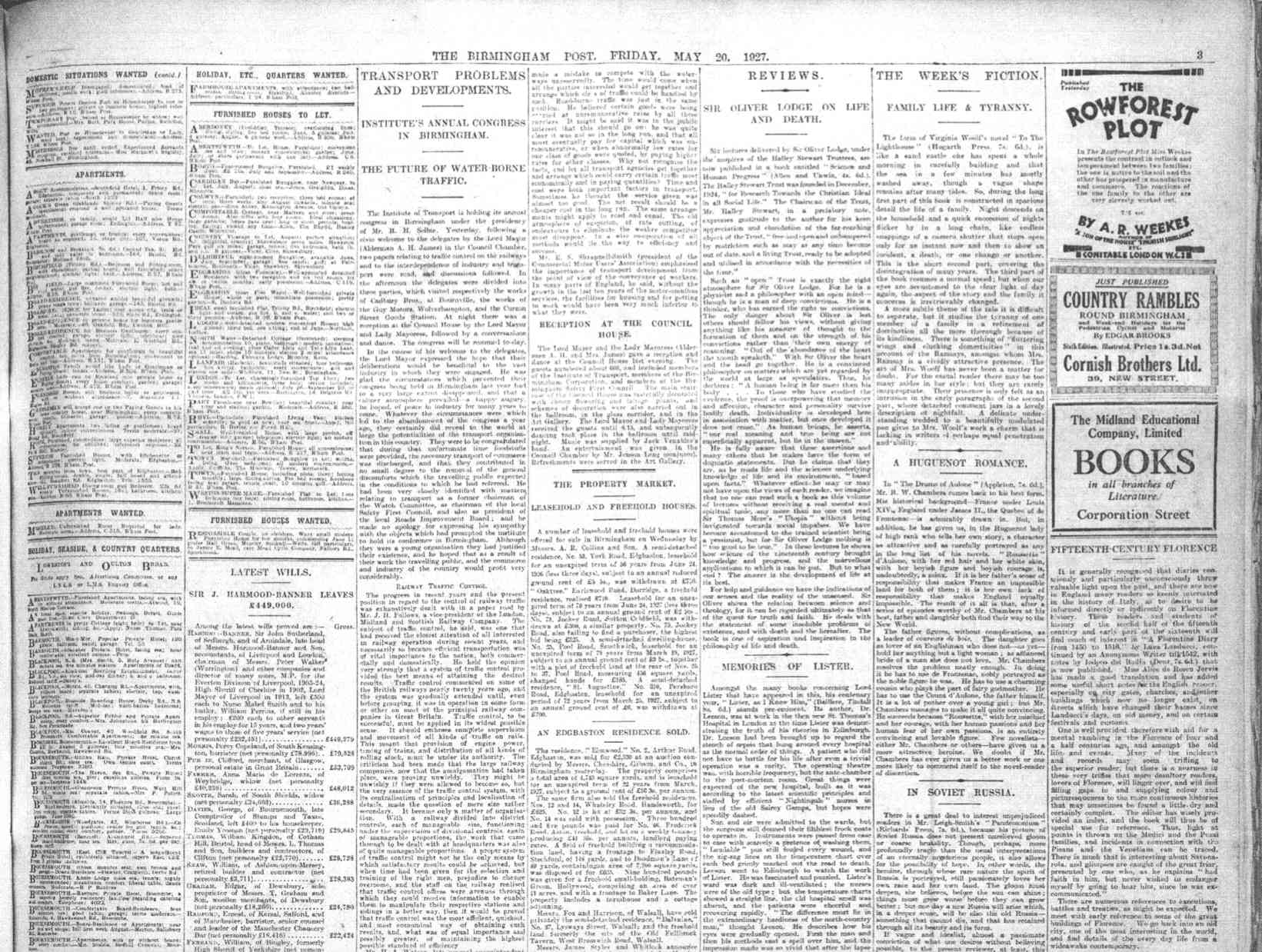
“Family Life and Tyranny.” The Birmingham Post. May 20, 1927. p.3
THE WEEK’S FICTION.
______
FAMILY LIFE & TYRANNY.
______
The form of Virginia Woolf’s novel “To The
Lighthouse” (Hogarth Press, 7s. 6d.), is
like a sand castle she has spent a whole
morning in carefully building and that
the sea in a few minutes has mostly
washed away, though a vague shape
remains after many tides. So, during the long
first part of this book is constructed in spacious
detail the life of a family. Night descends on
the household and a quick succession of nights
flicker by in a long chain, like endless
snappings of a camera shutter that stops open
only for an instant now and then to show an
incident, a death, or one change or another.
This is the short second part, covering the
disintegration of many years. The third part of
the book resumes a normal speed; but when our
eyes are accustomed to the clear light of day
again, the aspect of the story and the family it
concerns is irretrievably changed.
A more subtle theme of the tale it is difficult
to separate, but it studies the tyranny of one
member of a family in a refinement of
domination all the more thorough because of
its kindliness. There is something of “fluttering
wings and clucking domesticities” in this
account of the Ramsays, amongst whom Mrs.
Ramsay is a vividly attractive presence. The
art of Mrs. Woolf has never been a matter for
doubt. For the casual reader there may be too
many asides in her style; but they are rarely
inappropriate. Their presence is only felt as an
intrusion of in the early paragraphs of the second
part, where detached comment jars in a lovely
description of nightfall. A delicate understanding
wedded to a beautifully modulated
pen gives to Mrs. Woolf’s work a charm that is
lacking in writers of perhaps equal penetration
and ability.






